Serving Their (Other) Country
Permanent link
Ian Cooper, expanding his horizons
The majority of Jewish Americans entering their 20s rarely contemplate taking the opportunity to defend their country and serve in the military. Not so for Jewish Israelis, who are required to serve between two and three years in the Israel Defense Forces once they’ve turned 18. For these Chicago Jews, the idea of serving in the IDF was so meaningful that they each found their own unique way of defending the Jewish State.
When Ian Cooper exited the door of the synagogue on Masada after completing his Bar Mitzvah ceremony, he saw a group of Israeli soldiers and experienced a feeling that stays with him to this day.
“They stood there in total silence, in respect to the moment, and when it was over and I came out, they gave me an incredibly warm reception,” Cooper says. “That feeling of brotherhood and warmth was something I never forgot.”
Then, while he was in high school, he spent two months in Israel and made the decision to come back after college to volunteer in the IDF. But after visiting countless college campuses with his twin sister, he realized that his destiny was to go to Israel after high school and go into the IDF at the same age as his Israeli counterparts.
Cooper left for Israel soon after his high school graduation and served for 27 months. Unable to serve in a combat unit due to health issues, he took on the job of a non-commissioned officer in a small education base in Jerusalem’s Old City and ran week-long educational programs on Jerusalem for other soldiers. Not long after being honored as an outstanding soldier, he returned to the United States and began attending Northwestern University.
Cooper attributes his time in the IDF to opening his eyes to issues he’d never before contemplated and exposing him to entirely new experiences.
“I never thought that I would run the equivalent of a marathon with full gear, but it's possible,” he says. “There aren't really any limits to what we can accomplish as human beings as long as we don't restrict ourselves. I never would have had the opportunity to attend a Yemenite Passover Seder, which was way different from what I had experienced growing up. They say the Israeli army is the great equalizer – it brings people from all different religious and ethnic backgrounds and socioeconomic classes together and forces them to get along.”
After graduating Northwestern and bouncing around the world for several years, Cooper is back living in Israel. He works full-time as a licensed tour guide, a passion he realized during his time in the IDF.
“[Serving] is something that I can look back on in pride and say that I pitched in to make sure that we Jews have a place to call home – and not let a bunch of other people here take on the burden for me,” he says.
Stephanie Goldfarb (second from the left) volunteering for the IDF
Extending Birthright
After going on birthright in the summer of 2005, Stephanie Goldfarb extended her stay without much of a thought of what she wanted to do. She had the idea to volunteer for the IDF, and after contacting Sar-El, an Israeli volunteer program, she was handed a uniform and sent off to work.
“Birthright had really solidified my ties to Israel, but once I got into the army, it was a whole different perspective,” Goldfarb says. “It really made me value everything we have in the States—to see so many people my age running around with guns, it made me appreciate more what I have here.”
Goldfarb volunteered with the IDF for a total of three weeks, splitting her time between bases in northern and southern Israel. She did mostly behind-the-scenes work, toiling in warehouses and making packs full of ready-to-eat food, water bottles, clothes and blankets for soldiers who were stationed across the country.
Because she was in Israel during the Gaza disengagement, Goldfarb says that even the sometimes rudimentary work was fulfilling because she knew it was contributing to the overall success of the IDF.
“I felt really proud because I was giving time to the Israeli army during a very sensitive time in history,” she says. “Everyone there had friends who were out there working in the field and in peoples’ homes, and it was exciting to be a part of the whole operation.”
Mark Furman, serving in Israel
Making Aliyah
Above anything else, Mark Furman attributes a “feeling” to pushing him toward making aliyah and moving permanently to Israel. Serving in the IDF was not a primary reason for his decision to make the move, but his strong desire to defend Israel played a large role in expediting his journey overseas.
“Israel has been on my mind most of my adult life, and I didn’t want to regret not living here,” Furman says. “I knew that if I’d made aliyah after the age of 25, I wouldn’t be required to serve at all, so I moved to Israel a month before my birthday.”
Furman trained in both northern Israel and the Negev during the six-month service that is required for all new immigrants who make aliyah between the ages of 22 and 25. He went through basic training and ulpan (intensive Hebrew study) before receiving more in-depth training on how to operate an M71 cannon, considered the most accurate and reliable in the IDF.
Beyond the obvious lessons—he quips that he doesn’t think his suburban life in Chicago would have taught him how to shoot an 80 pound mortar out of a large cannon —Furman gained the confidence of knowing he could play an active role in defending his country.
“During the Second Lebanon War, when I was packing my things before the aliyah, I heard plenty of young people in the U.S. beating their chests and pledging to defend Israel,” he says. “I felt powerless because I could only hope that everything would be all right. Now, I know that if I’m needed, I’m just a phone call away from doing something real.”
To contact Ian Cooper about touring Israel, e-mail walkisrael@gmail.com


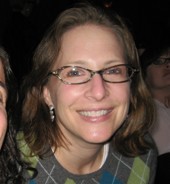

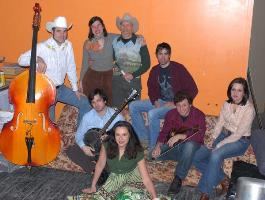
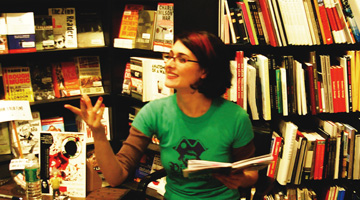



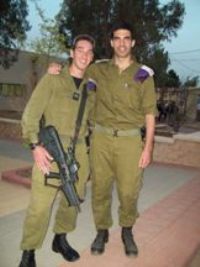

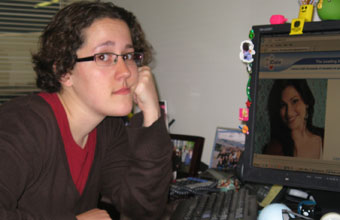


.jpg)


.jpg)


.jpg)



